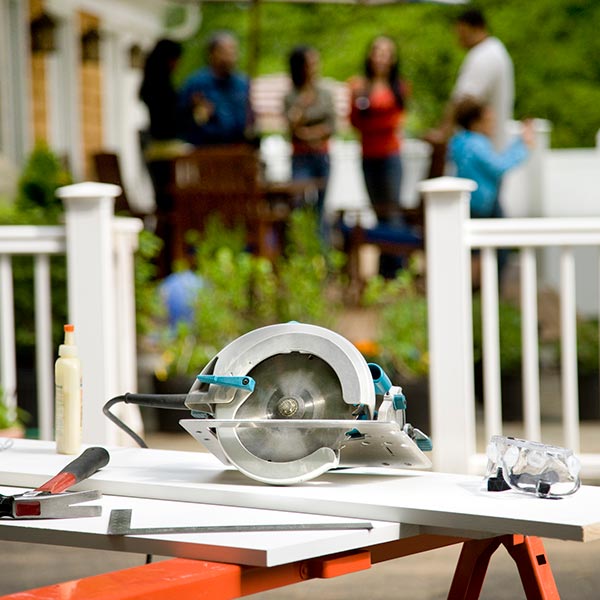
Cash-Out Refinancing
Calculate Your
Monthly Payment
Calculate Your Monthly Payment

Make the Most of Your Home Equity with Cash-Out Refinancing
- Get cash to make improvements to your home, or pay off high-interest credit card debt
- Refinance your conventional, FHA, VA or Jumbo home loan
- Low out-of-pocket costs*
*Low out-of-pocket cost refinance options are available to qualifying borrowers. Does not apply to taxes, insurance or pre-paid interest.
Today's Cash-Out Refinance Rates
See at a glance how VA IRRRL rates stack up today. Compare different mortgage loan types and learn more about how VA IRRRL can make your monthly mortgage payments more stable and affordable.
*
Discount points apply, view assumptions for details. Rates valid on:
Wed, Jul 12 2017, 09:49 AM PT and are subject to change without notice.
*
Discount points apply, view assumptions for details. Rates valid on:
Wed, Jul 12 2017, 09:49 AM PT and are subject to change without notice.
Rates display is temporarily unavailable.
For a rate quote, please call a Pennymac Loan Officer at (866) 549-3583.
What Is a Cash-Out Refinance?
A cash-out refinance replaces an existing mortgage with a new loan with a higher balance, sometimes with more favorable terms than the current loan. The difference between these two loans is distributed to the homeowner as cash.
Common uses of a cash-out refinance include paying off credit card debt, financing a business, covering college tuition, managing unexpected expenses, and making improvements to one’s home.
A cash-out refinance differs from a traditional mortgage refinancing, which simply replaces your current loan with a new loan that has a new set of terms and, in many cases, a lower interest rate. A cash-out refinance also differs from a home equity line of credit (HELOC), which allows you to borrow cash using the home-equity as collateral. HELOCs function as a second mortgage, with the borrower withdrawing and repaying funds on a more flexible schedule, and the government allowing a tax deduction for interest payments.* Unlike traditional first or second mortgages, a HELOC interest rate is not fixed; the rate varies from month to month with the prime rate.
The three most popular cash-out refinance options are:
- Conventional Cash-Out – Cash-out refinancing options are available to qualified homeowners with more than 20% equity in their homes.
- FHA Cash-Out – This cash-out refinancing option is available to homeowners with more than 20% equity in their homes.
- VA Cash-Out – If you are a US veteran or an active servicemember, choosing a VA Cash-Out Refinance often allows you to use even more equity from your loan.
Resources & Tools
Get a Customized Rate Quote
Tell us what you’d like to do, and we’ll give you a quick estimated quote of your potential monthly payment options based on the information you enter. You can also talk to a Pennymac Loan Expert for a one-on-one review, or get your application started at My Home By Pennymac.
Refinance Loan Calculators
Use today's cash-out refinance rates to get a better understanding of the true cost of different mortgage products before chatting with one of our licensed loan officers.
Mortgage Learning Center
We’re always adding new articles and resources to our Learning Center to help provide you with unbiased, useful mortgage information on a wide range of topics.
Home Value Estimator
Get a report on the estimated value of your home that provides two estimated market values from leading providers.
Reasons to Take Cash Out of Your Home
There are a number of common reasons homeowners choose cash-out refinancing over other options. Here are some scenarios in which it may be worth considering a cash-out refinance:
- You would like to use your home equity to pay for improvements that will increase the property value of your home
- You want to take advantage of the potential tax-deduction benefit associated with the interest paid on a mortgage loan*
- You wish to pay off high-interest and/or high-balance credit cards or eliminate other high interest debts to save money
- You run into unforeseen expenses, such as emergency medical bills or urgent and costly car repairs
- You need extra assistance paying for your child’s college education
Even if you find yourself in a situation like the above, you should carefully consider your decision and be sure a cash-out refinance makes sense.
*Consult a tax adviser for further information regarding the deductibility of interest and charges.
Is Cash-Out Refinancing Right for Me?
Using the equity in your home is a great way to get quick access to cash, but it’s also important to decide whether a cash-out refinance makes sense for you overall. The most important question to ask is, “What are my goals?”
If you’re looking to use cash to fund an exotic vacation, cash-out refinancing may not be worth the potential long-term cost. However, if you’re planning to use the money to pay off high-interest debt or renovate your home, the monthly payment savings or home value might make long-term financial sense.
Beyond your personal goals, there are other factors you should take into consideration. Here are some additional questions you should ask yourself before applying:
- Do I have enough equity in my home? – The maximum loan-to-value (LTV) ratio for a cash-out mortgage varies based on many factors, including; the occupancy status of your property (owner-occupied or rental), your credit status, and the loan product you choose (conventional, FHA or VA). Maximum LTV for Conventional and FHA products range from 70%-80%. This means you will need more equity in your home to make your cash-out refinance worthwhile if you plan to choose a conventional or FHA product.
- How will Cash-Out Refinancing affect my monthly payments? – A cash-out refinance increases the total loan amount so your monthly payments will often increase as well. Your mortgage payment may be lowered by extending the term of the cash-out refinance.** Additionally, if you are using the cash to pay-off a high-balance credit card, the monthly payment savings from paying off your credit card may help offset a higher cash-out mortgage payment. Pennymac’s loan officers can discuss the best options for your individual situation.
- Will I pay more money over the entire length of the loan? – In most cases you will pay more money over the life of the loan when you reset the term on a cash-out loan. For example, if you’re five years into your current 30 year loan, and take out a cash-out loan with a 30 year term, then you will most likely pay more over the life of the cash-out loan. However, Pennymac provides you the flexibility to set the loan term on a cash-out loan, which can help offset the total amount paid over the life of the cash-out loan. Pennymac’s loan officers can discuss the best options for your individual situation.
- Is my FHA loan eligible for cash-out refinancing? – If you have an FHA-insured mortgage you may qualify for an FHA Cash-Out Refinance. However you may be better off refinancing into a conventional loan as it does not require mortgage insurance.
- As a US veteran, what are my cash-out options? – Mortgages backed by the Department of Veterans Affairs may be eligible for a cash-out refinance. Even if your original mortgage is not a VA loan, your veteran, service member, or military family status may make you eligible for VA Cash-Out Refinancing. Even if a VA Cash-Out is not an option for you, you still may be able to qualify for FHA or Conventional cash-out refinancing.
Tip: Want to see how cash-out refinancing will change your monthly payments? Enter your info into our Refinancing Calculator to get an instant estimate.
**By refinancing your existing loan, your total finance charges may be higher over the life of the loan.
Requirements for Cash-Out Refinancing
Similar to when you applied for your original mortgage, you will be required to provide all of the necessary documents to prove your borrowing worthiness and you will be responsible for closing costs, though you may have the option to roll some costs into your loan amount.
Some of the documentation required may include:
- Pay stubs
- Tax returns and W-2′s and/or 1099′s
- A credit report
- Bank statements
Sorry the service is unavailable currently. Please visit Birdeye.com website to view Pennymac, LLC. reviews
Why Choose Pennymac as Your Cash-Out Lender?
Pennymac has earned the trust of more than one million homeowners. As a leading national mortgage lender, we take pride in catering to the unique needs of each and every homebuyer we serve. Whether you’re ready to purchase your first home, or you are looking to refinance, rest assured that our experienced loan officers will be there with you at every step of the mortgage process.
Pennymac is dedicated to making homeownership more affordable for everyone by offering a wide range of loan products with competitive cash-out refinance rates and fees. We’re working every day to improve the experience of accessing the equity in your home. Want to learn more about what your home’s equity can do for you with a Pennymac Cash-Out Refinance? Call and speak with a Pennymac loan officer, today!
Frequently Asked Cash-Out Refinancing Questions
Are There Additional Costs to Pay at Closing?
When you refinance your mortgage, including cash-out refinance, you must pay any associated closing costs—just like when you got the original mortgage. These costs may include escrow fees, an appraisal, and upfront private mortgage insurance fees (UFMIP). Depending on the specifics of your situation, you may have the option to roll your closing costs into your loan amount and not have to pay them at closing.
Can I Really Use the Money for Anything I Choose?
Essentially, yes, you can spend the cash on whatever you choose, though homeowners should be careful and intentional about how they use this much money. It’s important to weigh the total costs of cash-out refinancing. If you’re using the money to fund a short-term goal (such as a new luxury car), you may want to consider other loan options. Put simply, a cash-out refinance shouldn’t enable bad financial habits.
Will I Have to Pay Mortgage Insurance?
It depends. For conventional loans you will not pay private mortgage insurance, but for FHA you will pay an up-front and annual mortgage insurance, and for VA Loans, you will pay a Funding Fee.
Can I Take Cash out with an FHA Streamline Refinance?
No, the FHA Streamline program does not allow borrowers to take out cash with a loan.
What’s the Difference Between a Cash-Out Refinance and a Home Equity Loan?
A home equity line of credit (HELOC), is a credit-line secured by your home whereas a cash-out refinance is an entirely new first mortgage with cash back. Most HELOCs have an adjustable interest rate, whereas the ability to lock in a low fixed rate is an advantage of a cash-out refinance.
Why Are Refinance Rates Higher Than Purchase Rates?
Cash-out refinance rates are higher than typical purchase rates because there is greater risk involved. By taking cash out of your home, the home loan balance increases while the home’s value does not. This results in a higher loan-to-value ratio and lowers the overall home equity, adding more risk and demanding higher interest rates as a security measure. Educated and calculated risks are a part of home financing, and when done correctly and under the right circumstances, cash-out refinancing benefits can outweigh the ultimate risk.




